There is no such thing as a free lunch – reality check
“There is no such thing as a free lunch” is often banded around in life and is generally pretty true. When it comes to sustainable energy technologies, like wind turbines, solar panels and electric vehicles, the same rules apply. Solutions to sustainability problems often in themselves create other problems, especially in the effort and energy needed to manufacture the solutions. But do the negatives outweigh the positives?
Recently someone said to me “All that steel in wind turbines and support columns defeats their benefits”. Well, it is true that significant energy is used to manufacturer and construct the renewable energy capture equipment. This is called embedded carbon. But the truth from peer reviewed studies is that the first 64 days of operation of one large 3.4MW turbine generates the energy needed to manufacturer it. That is less than 1% of its lifetime.
Another recent viewpoint was that “The heavy weight of batteries of over a tonne and the steel and manufacturing mean that electric vehicles (EV) are not the answer”. Well, the weight and embedded carbon is for sure an issue. A conventional petrol vehicle has less embedded carbon than an EV; of 5.6 tonnes of CO2 versus 8.8 tonnes - true. But over the lifetime of the vehicle the total carbon is the important factor (24 versus 9 tonnes of CO2 when charged from renewable energy). That is over 60% less carbon impact by each EV car. Not forgetting the significant local air pollution improvements.
So we must seek the whole picture facts and attempt to debunk the hearsay and fake truths. There are no golden bullet solutions in this world, just lots of non-perfect solutions and changes that step in the right direction to help protect our planet for future generations.
For more information and peer reviewed literature that evidences these facts, see www.dorkingsolargroup.org
Written by: Paul Street (Dorking Solar Group)
.
.
Supporting Resources:
Peer reviewed Ricardo Study results:
|
Manufacturing tonnesCO2 |
In use tCO2 (15k miles pa for 6 years ) |
Total over life tonnesCO2 |
|
|
Electric Vehicle (incl. batteries) charged with renewable electricity |
8.8 |
0.5 * |
9.3 |
|
Petrol conventional vehicle |
5.6 |
13.4 |
24.0 |
|
Electric Vehicle (incl. batteries) charged with average grid electricity |
8.8 |
12.5 ** |
21.3 |
‘*’ based on including the embedded carbon of wind turbine manufacture for the renewable energy used for EV charging.
‘**’ based on UK average electricity grid electricity carbon intensity of 305gCO2/kWh for 2017. As opposed to 500 in USA.
Many people say “but what about the batteries”. Well, most EVs have guaranteed battery lives of 10 years; and most manufacturers than have a refurbish and re-use cycle (for example Nissan will refurbish and then use for another 10 years as home energy storage systems). And as the EV industry evolves then so will the waste and recycling industry to handle the lithium and precious metals.
Dorking Solar Group (DSG) supports local Doctors to go solar!
We were delighted to see the solar PV panels go up on Medwyn Surgery in the summer 2018. It’s great to see another Dorking landmark saving money and C02. Here’s how DSG were involved with the process throughout.
Ideal large south facing roof
The surgery were already considering solar when DSG got involved. We saw the opportunity of a large south facing roof with high daytime energy use as an ideal site for solar. Although you will be paid for generating clean energy and selling it back to the grid, the real win comes from the savings on paying for electricity because you generate it yourselves. So a site that is in use during the day is ideal. Medwyn are delighted with the results, they said “We are really pleased with the end result and look forward to seeing how much electricity we can generate. DSG were key in suggesting these for the roof, recommending suppliers and advice as we went along.”
Our free advice
We were able to provide a business case based on estimated costs and returns. We then suggested trusted suppliers for the installation. Medwyn decided to use one of them, Brockham based Helios Energy who worked with Solar Perfect for the job. We were on hand for impartial advice and even contributed to the planning permission consultation. Planning permission isn’t usually needed for solar PV and although it was in this case it passed without issue.“Its a great new solar system that the town can be proud of.” said Will Clemson of Helios Energy.
The facts:
60 x JA Solar 280W modules, black to blend in with the slate roofA peak output of 16.8kW.
Payback in 8 years (based on FIT, generation and electricity savings) 25 year performance warranty (expected 30+ year lifespan).
SolarEdge optimised inverter.
What we did, for free:
Made a business case based on estimate costs and return.
Advised on trusted suppliers.
Encouraged!
Do get in touch info@dorkingsolargroup.org if you would like us to run some quick numbers for you.
Denbies installs a 16kW solar array!
Great news! Local business and leading national vineyard, Denbies, has installed a 16kW array of solar panels on its farm building roof. Increasingly, businesses are seeing the advantages of installing their own electricity generation equipment as the up front costs drop and energy prices rise.
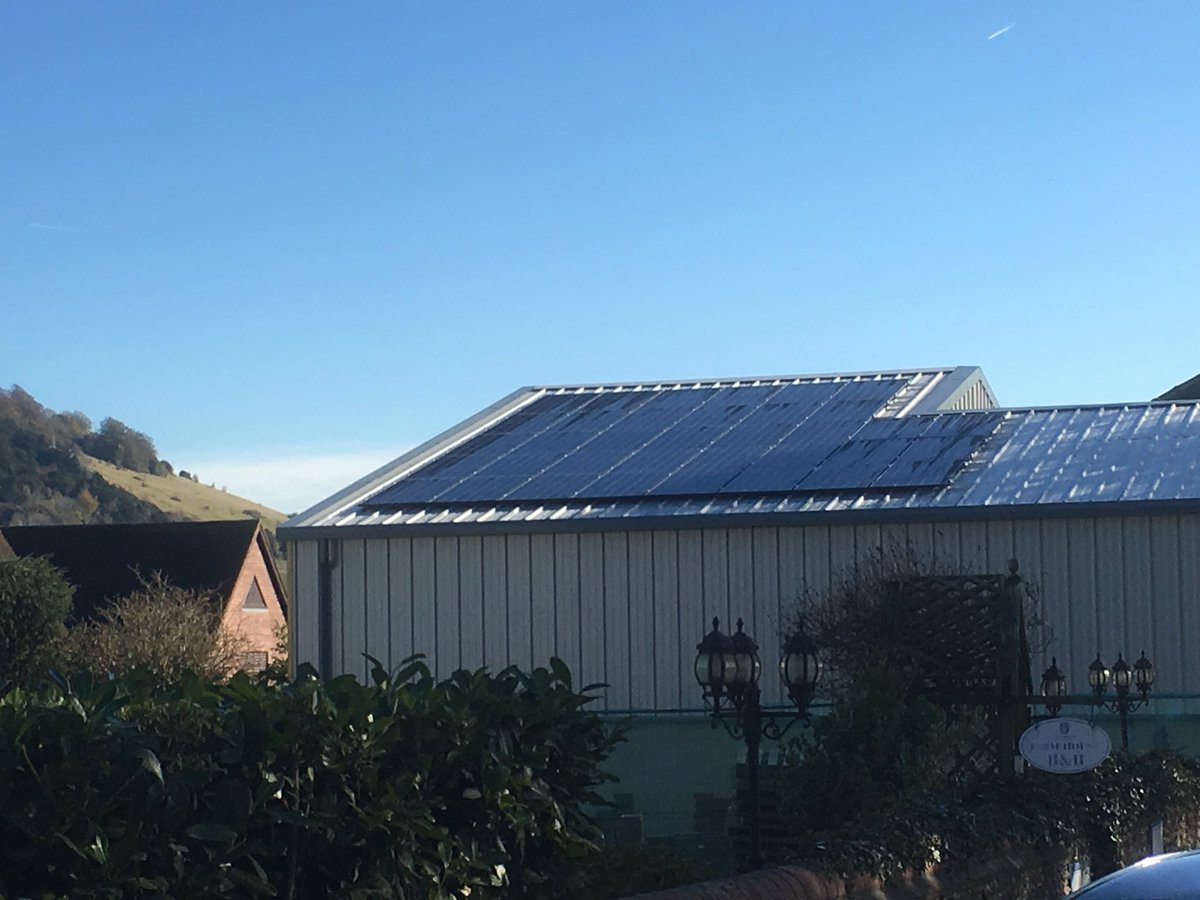
How green is your workplace?
We are increasingly aware of the environmental decisions we make in our homes, but what of our workplaces? Do our good intentions extend to the places where we actually spend most of our time? There are a number of things we can do to make sure that our workplace is just as environmentally-friendly as our home.
Firstly, if you work in an office, there’s a good chance that you have a printer. Think about using recycled paper, and printing on both sides. Look into using refillable printer cartridges, to prevent plastic waste. Think twice before printing at all. Fountain pens – however antiquated they may sound – are a much greener option than plastic biros. Avoid staples, opting for paper clips instead wherever possible.
Choose environmentally-friendly cleaning materials. Not only are they better for the environment, but it will be healthier for you and your colleagues too.
Avoid single-use plastic – get a Keep Cup for hot drinks on your commute, a refillable bottle for cold drinks, and, if you eat lunch at work, use ‘proper’ cutlery and crockery rather than plastic. Avoid waste by buying and sharing condiments and staples such as tea and coffee with your colleagues. Recycle as much as possible – if there is a kitchen in your workplace, you may be able to arrange for your food waste to be collected. If you prefer to eat out at lunchtime, opt for an independent local café.
Make the most of natural light and ventilation. Not only will you feel better for it, but you’ll save resources too. Wear an extra layer rather than cranking up the heating in winter. Plants are a great addition to the workplace environment, too. Spider plants are particularly helpful, having been found to absorb the emissions from computers.
Think about your commute. Could you walk, cycle or take public transport to work rather than drive? You may even be able to car share with a colleague. As well as environmental benefits, this will save you time and money.
The constant stream of bad news may make the current damage to the environment seem overwhelming – but if many of us make even small changes, just think what a difference we could make.
Transition Dorking is part of the much larger Transition Movement, an international grass roots response to the challenges of sustainability and climate change. See www.transitiondorking.org.uk.
By Tara Craig
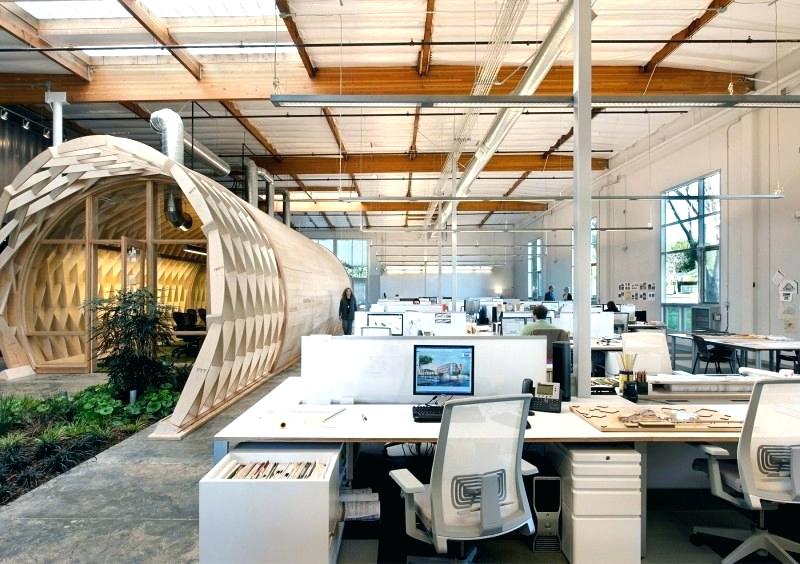
Big Six Firm is going all in on renewables
Scottish Power, one of the Big Six energy companies in the UK, announced this week that it had sold its last 4 gas fired power stations and was now exclusively generating from a portfolio of onshore and offshore wind farms. By 2020, Scottish Power expects to complete the construction of the world's largest offshore windfarm, East Anglia One, which will have a generating capacity of 714 MW. Later down the line, the group is also expecting to develop an even larger 1,200 MW project, East Anglia Three, which was granted planning permission in August 2017.
In addition to the good news above, Scottish Power also announced this week that they will be investing in solar for the first time, as it sees this technology as complementary to it's wind plant.
The group currently generates enough electricity to supply 1.2 million homes, and is planning to invest £5.2bn and double it's current capacity.
The firm's Spanish parent, Iberdrola, is aiming to reduce emissions by 30% by 2020 and 50% by 2030 compared to 2007, with underlying objective to be completely carbon neutral by 2050.
Kate Blagojevic, head of energy at Greenpeace UK commented: "Big utilities across Europe have been shedding their dirty fossil fuel infrastructure because it makes economic and environmental sense."
What is the difference between a fracking site and a garden shed?
What is the difference between a fracking site and a garden shed? Nothing! If the current proposed legislation gets the nod, you won’t need local planning permission for either.
Earlier this year the government issued a written ministerial statement which proposes that exploratory drilling for shale gas should be considered permitted development, and therefore would not require fracking companies to go through the normal local planning system.
We know that the commercial extraction of this type of fuel deposit depends on being able to drill your wells almost back to back, so it becomes very much like an industrial process. In practical terms that means anything up to 2,500 wells across the Wield.
The UK has the knowledge and technology to create a world-leading, sustainable clean energy revolution and certainly progress has been made in this industry, but for how long?
Many of us will be aware of the Feed in Tariff (FIT) system which is essentially the scheme in place to reward those who produce renewable energy fed onto the national grid for general use. Taking solar energy for example, this can be produced privately on your own roof or on a larger scale on a solar farm. The FIT comes in two parts; a payment per unit for feeding it onto the grid, and a payment per unit for producing it in the first place.
As technology advances and the panels become more efficient the financial incentives have been reducing, and rightly so. But, if a second government proposal gains approval, come next March new installations will receive nothing for supplying it to the grid and nothing for generating it.
Solar energy fed into the grid clearly has a value. In fact, decentralised energy generated close to consumer demand – as is mostly the case with solar, rather than from a large power station – has an even greater value as it suffers less from transmission losses and distribution costs.
It is energy that is generated during daylight hours, when demand is high (as opposed to night when demand is low) and wholesale prices generally follow this pattern. So, Solar is producing at times that are valuable to the energy system as a whole.
The planet is getting warmer and warmer with no sign of stopping so we must work together to increase clean energy production and reduce the use of fossil fuels. Not the other way round, as appears to be the objective of these proposed new legislations!
By Steve McDonald.
Published in the In Transition section of the Dorking and Leatherhead Advertiser.
! - Column writers wanted - Do you think you have it in you to contribute to this column? You don't have to be experienced in journalism, but you do need to have something to say! Interested in finding out more - just let me know. smcdonald88@hotmail.com
Let's hear the fracking company's argument regarding community benefit!
I was not an early adopter of the ‘Don’t Drill Leith Hill’ campaign. I just wasn’t sure. Didn’t we need oil to help us transition into the non- fossil future (that is what we are heading, whether we like it or not.)
So - as instructed by my father - I did a benefits and drawbacks analysis; I read; I researched; I listened to both sides.
And here are my conclusions:
I stand against oil prospecting (whether fracking or acidisation) on Leith Hill, Brockham and across the Weald.
I have looked for the benefits. I can’t find any for me, my family or my community, but I am open to persuasion.
I have also considered the drawbacks which seem to me as follows:
David Attenborough has left us no in doubt about the deterioration of our relationship with our planet. Now is the time to invest in renewable sources of energy.
We do not have the wide-open spaces between drilling sites like America, Canada and Australia. We do not have the space between areas of prospecting and habitation to run the risks of some of the negative impacts witnessed in those countries.
As a parent I don’t want to hand over yet another ‘cock up’ for my children’s generation to deal with such as mopping up any mess/mistakes made in the process (toxins leeching into the water table, pipes containing chemicals cracking/tankers spilling as they carry toxic waste from the site)
Any driver trying to cross or bypass Dorking will know we face massive challenges already. Add to that vehicles delivering the infra structure for the project, plus transporting water in (yes really) for the process, and waste out, will share my concerns.
And finally…yes as a NIMBY! The impact on the roads such as mine at the end of Coldharbour Lane will be significant: probable drop in house values and congestion being two of the key drawbacks.
However, I am willing to listen to Europa, the oil company responsible. I will be including a copy of this article with an invitation to them to come to our town and explain their evaluation of the benefits and drawbacks for our community. Transition Dorking will find the venue, the neutral chairperson and even foot the tea and biscuits bill.
Join me in urging them to come by writing to: mail@europaoil.com or post to 6 Porter Street, London, W1U 6DD
Transition Dorking is part of the much larger Transition Movement, an international grass roots response to the challenges of sustainability and climate change. Find out more at www.transitiondorking.org.uk
By Sally Elias.
Published in the In Transition section of the Dorking & Leatherhead Advertiser.
Climate Change update - summer 2018
Here is an update on the state of climate change as of summer 2018. The first part makes hard reading. But there is great hope, keep reading to the end.
Read here: /files/2018-09/climate-change-update-summer-2018.pdf
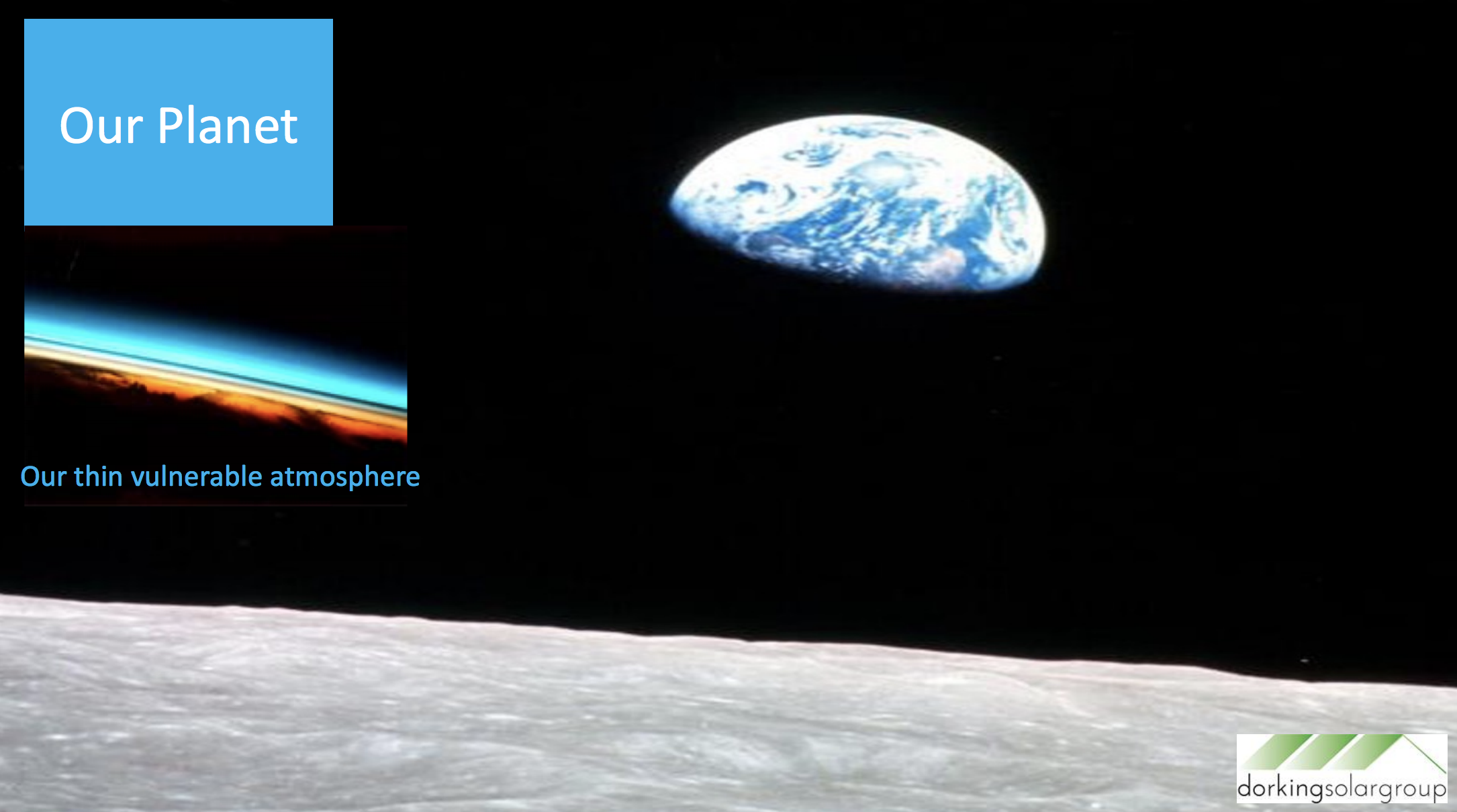
Dorking Solar Group at Pippfest – Sunday 09 Sep
Drop by our stall at the Pippfest festival and find out
· Why is renewable energy often cheaper than traditional energy and discover how easy it is to switch from your current supplier while saving on your bills in the process
· See our Electric vehicle and find out why it costs only 2p per mile to fuel with 100% clean energy
· Learn more about Schools' Energy Co-op community share offer to put solar panels on schools
Visit:
https://pippfest.wordpress.com/
and
https://www.facebook.com/Pippfest/

Geologists call for oil drilling ban as Surrey experiences 10th earthquake
A series of not less than 10 earthquakes have struck Surrey and parts of West Sussex since only 1st April, and no this is not a joke!
The series of earthquakes was unprecedented, raising concerns that they may be linked to recent oil activity in the area.
New monitoring stations installed by the British Geological Survey (BGS) discovered that quake depths were under 1 km - around the same depth that oil operations have been taking place.
In a letter to The Times newspaper four eminent geologists called for a ban on oil drilling in Surrey while investigations are carried out.
Read the following articles for yourself and see if this is an April fool's joke:
For more information on fracking developments in the area, please visit:
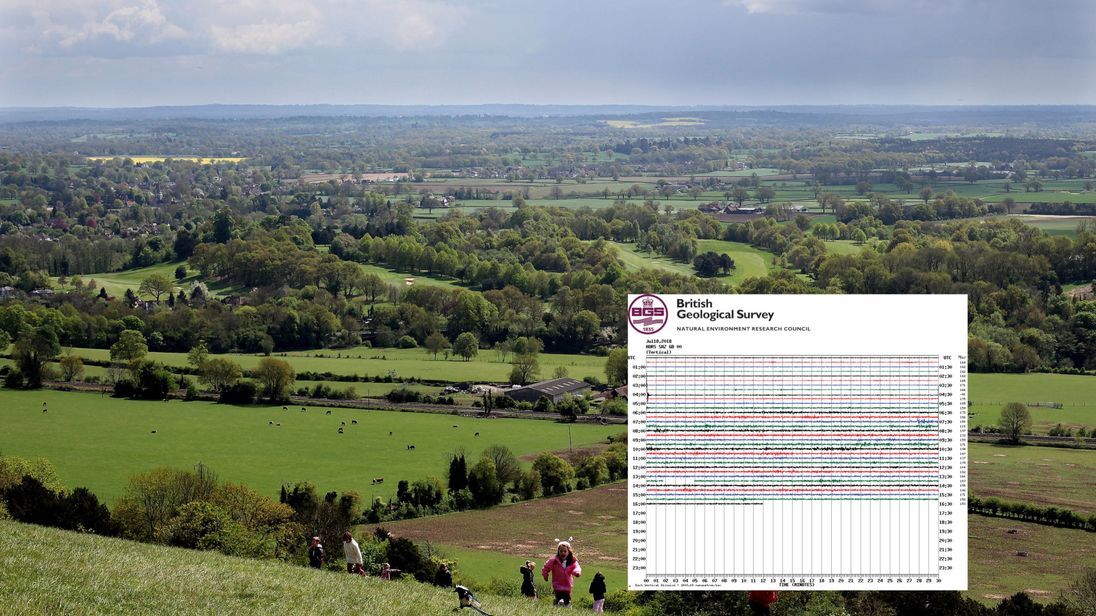
Guest speaker Nicola Peel at Burgundy & Black – Thursday 20 Sep 7.30pm
Guest speaker Nicola Peel at Burgundy & Black – Thursday 20 Sep 7.30pm
International award-winning environmentalist, filmmaker, speaker and solutionist, Nicola Peel, has been working in the Ecuadorian Amazon for 18 years on a number of environmental and social projects. Finding solutions to oils spills with fungi, building rainwater systems for indigenous people suffering from contamination due to the oil industry, training farmers in agroforestry to prevent the slash and burn of tropical rainforests and cleaning the beaches of tons of plastic, turning rubbish into a resource.
Come and see Nicola inspire us to find solutions for those in need, suffering from resource extraction, poverty and climate change.
To reserve a seat just respond to this email smcdonald88@hotmail.com
Visit Nicola's website & blog: www.nicolapeel.com.
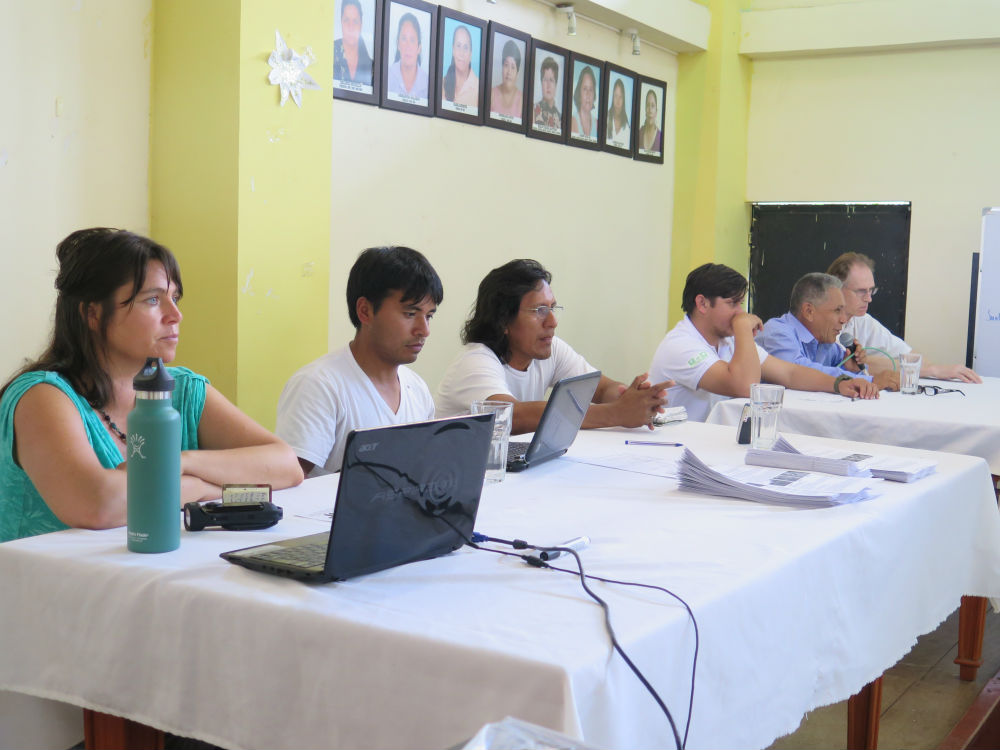

Be a part of the Schools' Energy Co-op community solar project
The Schools’ Energy Co-op (SEC) is now seeking to raise £500,000 to install Solar Panels on at least seven schools and a children’s hospice via its fourth public share offer. Since August 2014, SEC has raised £1.3m which have been used to finance solar panel installations on 36 schools while paying back interest to community investors. The schools need not pay for the panels and their electricity rates are reduced. Most of the electricity produced is consumed on site by the schools which operate during the day, ensuring an efficient electricity distribution system, reducing carbon emissions and acting as a real time engineering lesson for the students.
Members of the public can invest as little as £100 in the offer and receive a 4.5% annual return on their investment, although please keep in mind that these investments should be viewed long term. The share offer is expected to close on 18th September, depending on when funding targets are met. Like Dorking Solar Group, SEC is a non profit entity acting in the interest of the overall community.
If you would like to learn more about this offer, please read the investment brochure by clicking on the following link: https://schools-energy-coop.co.uk/share-offer-2.

Lessons from Ice Age 5
Have you watched Ice Age 5? In it a motley crew of animals ranging from mammoths through sabre tooth tigers to sloths and opposums co-operated to save the Earth from total disaster. They each contributed their particular gifts, or sometimes their particular faults were needed!
We could learn much from this film. We humans need to cooperate, giving all that we can in order to avoid planetary disaster. As the children of Dorking Quaker Meeting said in a letter to the local supermarkets, “We want there still to be a viable planet on which our children and grandchildren can live.”
The children’s letter to Waitrose, Sainsburys, Tesco and Lidl was about plastic packaging and use of palm oil in food products. They tailored each letter according to the supermarkets behaviour but all letters included these words, “Like many people we watched and were enthralled by BBC’s Blue Planet, but very upset about the plastic waste going in the oceans. … One practical thing we thought we could do is ask every supermarket in Dorking, where we live, to stop selling bakery items and fruit/vegetables in single-use plastic bags/containers. … The plastic waste choking the oceans is part of a bigger issue of what humans are doing to accelerate climate changes and global warming – which worries us greatly. Along with ocean changes, we have learned that deforestation is a massive contribution to these changes. We need clean oceans and lots of trees to keep our air clean and healthy. One major reason for deforestation is the creation of massive palm oil plantations. We have noticed that you use palm oil in lots of your own brand products.”
The children delivered the letters to the shop managers and have received sympathetic replies from two so far – Tesco and Lidl. Continuing their ‘campaign’ they have put up posters in the Quaker Meeting House to remind adult Quakers to do their bit and have given them small squares of green paper with the word ‘REMEMBER’ to put in their purses so they remember to avoid single-use plastic and unsustainable palm oil!
As their letter says “There is a great deal we all need to do to make our collective way of living more sustainable … We ask this as the generation that will have to clear up the mess our parents and grandparents have made of this amazing planet”. Very humbling!
Transition Dorking is part of the much larger Transition Movement, an international grass roots response to the challenges of sustainability and climate change. Find out more at www.transitiondorking.org.uk.
By Anne Brewer
7506 barrels of oil

Located on the Serpentine lake in Hyde Park, London is this art installation. It measures 20m high by 30m and 40m at its base. It's quite amazing - go and check it out.
The art installation is formed from 7,506 oil barrels (empty). See more about the art installation and artists at this link.
It has the storage volume of approximately 1,000 tonnes of oil equivalent.
Guess how long that would fuel the United Kingdom for?
2 minutes. Yes I’ll say it again 2 minutes. Of that 61% for liquid fuels such a road/aviation fuels and the rest 39% as other fossil fuels for energy. This is the primary energy (meaning before conversion or processing) that the UK uses. The UK used 237 mtoe (million tonnes of oil equivalent) of fossil fuels in 2016. Based on UK government BEIS dept statistics. Around 45% of that fossil fuel primary energy was imported.
Shouldn't we all try and do something about it? Then see our ‘focus area’ links at the bottom of this page.
Keep it in the Ground
So much for our legal protections. A new mapping analysis finds that nearly 200,000 acres of protected countryside in Mole Valley and elsewhere in south-east England face a new wave of oil drilling. Some of the land is in National Parks and Areas of Outstanding Natural Beauty. Not only is this really bad for our climate. It is totally unnecessary. As Anne Brewer reported in this column recently (Advertiser, March 15, 2018), the recent big freeze is no sign of the end of global warming. Quite the opposite. It was caused by a heatwave in the depth of the Arctic winter, where it was warmer than in London, Paris or New York. The drilling is unnecessary because brilliant technologies already exist as an alternative to oil extraction. Over a decade ago we learned that electricity could be harvested from new forms of paving on footways, or even the rumble of trains across bridges. Little has happened, though that may be because solar panels and wind have outperformed even conventional power generation. Solar panels can even work when it's raining. Chinese engineers have generated useful electricity by laying two transparent polymer layers on top of solar panels. These 'teng' devices are well known, but the latest design, from Soochow University, is simpler, cheaper, and more efficient than earlier examples. And they work at night!The Chinese are showing an impressive grasp of the need to move to cleaner sources of energy. How long will it take for the penny to drop here? And what does it all mean in Bookham or Brockham? First, that anything we can do to reduce CO2 emissions has to be a benefit. We all know that means walking and cycling where we can - avoid taking the car. If we can't solve the problem by ourselves we can at least not make things worse. But it's more than that. It's to accept, then say out loud, that we do not need and cannot afford to take any more gas or oil out of the ground at Leith Hill or anywhere else. At the very least, if we value the delightful surroundings nature has provided for us in Mole Valley, it means speaking up againstfurther extraction here. Transition Bookham is part of the Transition Movement, an international grassroots response to the challenges of sustainability and climate change. Find out more at www.transitionbookham.org.uk . By John Dwyer
Change to a clean energy supplier - drop in session
Saturday 9 June at Burgundy & Black, St Martin's Walk, Dorking
Come to our drop in session where we will find you the best clean energy supplier for your circumstances. With renewables becoming a more mainstream, more cost-effective energy option, it may even save you money.
Have a look at this table which compares all the current UK energy suppliers, with our recommendation in the right hand column.
You can contact info@dorkingsolargroup.org if you'd like any more advice around this or look at:
See more information - click here
Easter eggs, earthquakes and fracking in Mole Valley
Did you know that on Easter weekend an earthquake with a magnitude of 2.7 struck at Stan Hill near Newdigate?
It is believed to be the strongest Earthquake to hit Surrey in at least a decade. Initally we thought it was an April fool's joke, but it wasn't.
The epicentre was less than 6 miles from Leith Hill, where Europa Oil and Gas is hoping to commence exploratory drilling as soon as they can sort out their Traffic Management Plan with Surrey County Council. It is also less than 2 miles from Europa's other site at Horse Hill, which according to Europa, ceased activity two years ago.
So what is the effect of fracking on seismic activity and what is the impact of seismic activity on fracking?
There is evidence to suggest that drilling too close to fault lines can cause man-made earthquakes. This is what occured twice at Cuadrilla's Preese Hall site near Blackpool, where quakes with magnitudes of 2.3 and 1.5 occured in April and May 2011, respectively. Also, less than a month after fracking began at Engie's Cygnus Field in the North Sea in January 2017, a 3.8 quake struck a few mile nearby.
Not surprisingly, Europa denies their activities caused the tremor.
Although fracking companies can argue that fracking may not cause earthquakes, they can not deny the threat to underground water systems caused by the earthquakes when fracking is present. For example, the earthquakes at Preese Hall damaged the drilling wells, which in turn leaked hazardous chemicals into the ground.
This recent quake creates a strong argument against fracking at Leith Hill. We encourage the local community to write to council and express their concerns. We believe the battle is increasingly looking uphill for Europa's investors, but only thanks to strong community persistence.
This quake is also a clear reminder of what a stupid idea it is to let "Cowboy frackers" threaten this area of outstanding natural beauty.
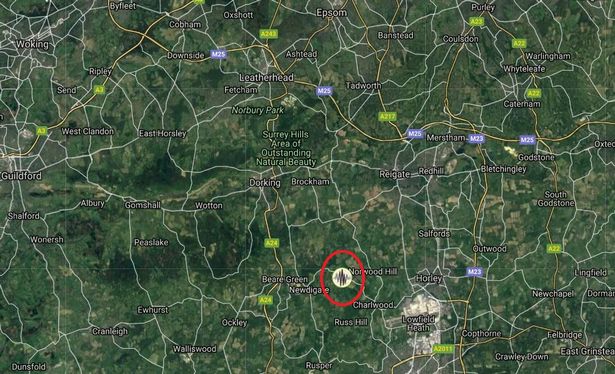
For more information, please visit:
https://www.getsurrey.co.uk/news/earthquake-hits-mole-valley-easter-14483258
https://drillordrop.com/2018/04/04/oil-company-says-were-not-to-blame-for-surrey-earthquake-but-local-concerns-remain/
Divestment workshop - Saturday 26th May in Guildford
Join the fight to free Surrey from its harmful investments in fossil fuel companies!
This free skill share workshop is an exciting opportunity to learn how to communicate, engage and build positive relationships with MPs and Councillors regarding fossil fuel divestment.
The event will be held on Saturday, 26 May at Beverley Hall Community Centre, 71 Haydoon Place, Guildford, Surrey GU1 4ND
We'll be learning and putting into practice the best techniques, tricks and strategies to convince local MPs and Councillors to back divestment and to get their support for investing in a clean energy future.
As well as free snacks, you can expect to:
• Get to grips with the exciting divestment movement and our work in Surrey
• Learn about effective ways to build relationships MPs and Councillors
• Concoct ace plans to engage MPs and Councillors across Surrey about divestment
We need everyone to help pressure our political leaders to keep fossil fuels in the ground and invest in a common future that is powered by renewables, so you are needed to help with this regardless of experience or background!
If you can’t make the event, you can still write to your MP urging them to divest their pension using this email tool (please personalise your email as much as possible!):
https://gofossilfree.org/uk/divest-parliament/#ask
Please also sign the petition calling on the Surrey County Pension Fund to divest:
https://campaigns.gofossilfree.org/petitions/divestsurrey
Any questions about the event, please email Stephen on smcdonald88@hotmail.com or divestparliament@gmail.com
Thanks,
Stephen (Divest Surrey), Vicki (Surrey Federation of Green Parties) and Hannah (Divest Parliament)
This event is a collaboration between Divest Surrey, Surrey Federation of Green Parties and Divest Parliament
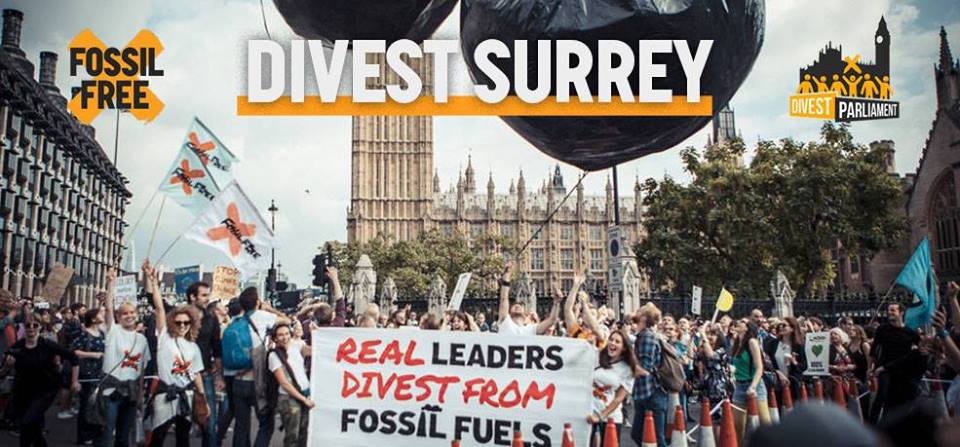
The Eco School's Agenda
If we are ever to have a lasting impact on the ongoing health of our planet there has to be a lasting impact on the behaviour of our children and their families. This is exactly what Polesden Lacey Infant School in Bookham has been doing for the last 9 years.
Headteacher Rosie Keedy said, “The overarching aim is to ensure that when the children leave this school they have deep rooted sense of their responsibility to look after the planet and a raft of ideas of all the small everyday things that they can do to help this. We also hope to influence the behaviours of their families”.
Examples of big one-off projects over the last 9 years include building a greenhouse from plastic bottles, developing a vegetable garden with raised beds, making a green footpath around the school hall to celebrate “Green” actions at home, becoming an ambassador for the Green flag project. Creating a wildflower meadow, building a bug hotel, designing and selling hessian bags to use instead of plastic bags, working with Water Aid to understand how precious water is and burying waste and leaving it for a year to see what happens.
Rosie added, “Children produce outstanding work because they are inspired by the idea that they are stewards of their planet and the teachers find it supports their work because the children are so enthusiastic. We imagine that if the school were a stick of rock it would have eco written through it”
The school sees benefits all round. Parents are pleased that their children are showing responsibility, Governors are happy to see the high standards of work going hand in hand with a strong sense of community, and as we consistently spend less than the allocated budget on resources through recycling, reusing and mending, the bursar is also very much on side with this.
Even after this time the school is constantly on the lookout for new ways to look after our environment. This starts with the eco Committee brainstorming ideas and considering how this could translate into meaningful activities for the children. These ideas are then put to the children to give them the opportunity to find solutions. For example, it was the children who decided to stop sending Christmas cards and the children who started recording when lights are left on. One parent had said, “it’s like living with the eco police”
Polesden Lacey Infant School is committed to working with other schools to raise awareness of the valuable learning opportunities presented by the Eco Schools agenda.
Could you help to inspire this in your child’s or grandchild’s school? To find out more contact info@dorkingsolargroup.org
By Steve McDonald
This post appeared in the In Transition section of the Dorking & Leatherhead Advertiser
Choosing an Energy Supplier - food for thought
You have two options to choose:
-- Dirty polluting energy with poor customer service and expensive; or...
-- 100% clean energy with good customer services and cheaper.
Which would you choose? A bit of a 'no brainer' isn't it?
Well then, read this summary document, prepared by Dorking Solar Group in April 2018, which compares and contrasts all the current Energy Suppliers in UK. Quite an amazing and radical result.
ACT NOW. It's a really easy to change energy supplier. If you need help to change to a better and cleaner energy supplier just drop a line to Dorking Solar Group at info@dorkingsolargroup.org
Are we sure we have a democracy?
Are we sure we have a democracy?
In the General Election of 1992, in the constituency of Inverness, Nairn, and Lochaber, the winning candidate Sir Russell Johnston received 13,258 votes. The second-placed candidate received 12,800 votes. Third-placed - 12,562. Fourth-placed - 11,517, and fifth-placed - 766 votes.
Lined up against Sir Russell Johnston’s 13,258 votes were 37,645 electors where the “opinion of the people in the choice of the legislature” for this constituency was clearly not Sir Russell Johnston. Yet still he was “the candidate to whom the majority of votes has been given”
Thus, a perverse system also becomes a farcical system, and questions must surely reasonably be asked about the statute which supports such a system. In UK electoral procedure, “majority” is relative majority, often called “plurality”. It is not an arithmetic “simple” majority.
In the General Election of 2015, it required the votes of almost four million people to get a single MP elected for the United Kingdom Independence Party but only 26,000 to get an SNP MP elected. This has nothing to do with Scotland being a small country, as constituencies throughout the whole of the UK are designed to consist as far as possible of the same number of electors.
In 1980, the then Liberal party brought an action asserting that the UK electoral system discriminated against them as typically it required the votes of 250,000 people to get a Liberal MP elected but only around 38,000 for the Labour and Conservative parties.
They lost of course, as the European judges would not interfere in the internal electoral arrangements of member states. The good news is that the judgement was an erroneous and flawed rationale designed to support a policy decision and so unlikely to be an obstacle to future legal action.
Such a legal action has been prepared, which enables a superior court to make a Declaration of Incompatibility where in the opinion of the court a statute is not compatible with human rights. The matter is then passed back to Parliament, where it rightly belongs.
Proportional Representation(PR) will not affect safe constituences like Mole Valley, but the votes of the candidates who come second, third, and fourth etc. will not be discarded to the waste paper bin as they are now. They will count towards the composition of the legislature, and so mean something.
Further really interesting reading about whether the UK really is a democracy can be found at www.notaxationwithoutproportionalrepresentation.co.uk
By Thomas Connor
Published in the In Transition Section of the Dorking & Leatherhead Advertiser
Who is Elon Musk?
Did you watch the SpaceX rocket launch a few weeks ago? Wasn’t it exciting? I don’t remember such anticipation about something going into space since the Space Shuttle was withdrawn from service. We’d all got a bit blasé about stuff shooting into orbit. But this was different - suddenly rocket launches were back in the news again!
This wasn’t NASA though, or some other state sponsored space programme, but a private company. Who on earth has enough money to experiment with rocket launches? Some chap called Elon Musk, apparently. I was sure I’d heard of him before, something to do with electric cars? Well that didn’t really sound right though, on the one hand putting your life savings into building a cool eco car to persuade the petrol heads of the word that they don’t need to kill the planet with their emissions, but on the other to be burning tons of oxygen sending stuff into space. A bit of an enigma.
So, I had a bit of a think about what sort of guy I imagined Mr Musk to be. Probably getting on a bit to have amassed enough of a fortune to be splashing it about on space rockets. Or maybe a very charming young man with an extremely convincing manner who’s persuaded other people to join his adventure.
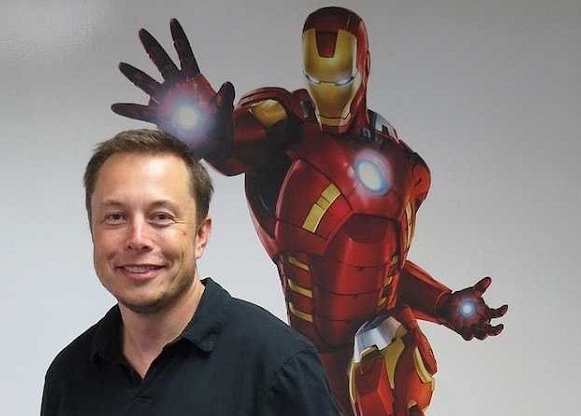
But what’s the reality? Somewhere in between would be a fair assessment from what I can gather. He’s currently the 53rd richest person in the world, so can fund pretty much anything he fancies all by himself. He’s also 46, so he’s been working on that fortune for quite some time - since he was 12 in fact, when he developed and sold a computer game for $500. He seems to have applied himself to his studies after that, right up until he threw caution to the wind two days into a PhD in physics, deciding to become an entrepreneur instead.
From there on in he seems to have gone from strength to strength, being involved in the foundation of PayPal along the way. SpaceX and the rockets came out of Mr Musk’s lifelong interest in colonising Mars. He’s been quoted as wanting to die on Mars. After he’s had his fill of mars bars of course. I’m not sure he was actually talking about the chocolate ones when he mentioned mars bars last week as something he’ll be looking to have plenty of up there on the old red planet. So in answer to the old question ‘is there life on mars?’ there will be if Elon Musk has anything to do with it!
By Amanda Street
Published in the In transition section of the Dorking and Leatherhead Advertiser, April 2018.
Switching suppliers saves money and CO2
We have good news that you may not be aware of. You can switch to an ethical energy supplier and save money!
Yes, times are changing and with renewable installations and technology improving, many renewable only suppliers are offering better tariffs than the Big 6.
But you do need to put in a little effort in as a crisp eating consumer. And that means getting off the couch and calling up one of these suppliers and making the switch ... but who do you call? Dorking Solar Group have teamed up with ethical tariff comparison website Big Clean Switch, who will find the best offer for you.
Big Clean Switch is a website that allows you to compare the tariff you currently pay with those of ethical suppliers who generate their electricity from 100% renewable sources (and we mean no nuclear!). A typical UK home will save £270 from their service.
So if you're fed up with current politics, then let your consumer voice be heard and make the switch. And, with the money saved you can buy a new tele that will run on 100% renewable electricity.
Please visit: www.bigcleanswitch.org
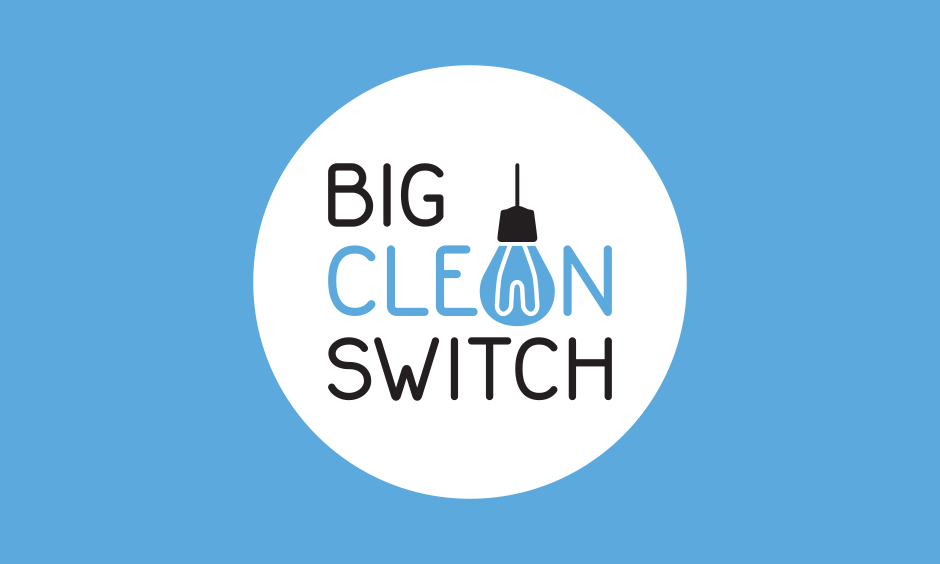
Not such a bad day for UK renewables
Renewables still have a long way to go before becoming our primary source of electricity generation and intermittency still remains a major hurdle.
Nevertheless, our energy mix is improving. Consider this interesting fact:
At midday on the 21st of March 2018, the UK electricity demand was 44GW. Roughly 30% of this demand was met by a combination of wind and solar which generated 7GW and 6GW, respectively. Wind generation had a record year last year, representing 15% of the UK's energy mix in 2017, up from 10% in 2016.
If you would like a detailed breakdown of the UK's electricity demand and supply, visit the following:
http://gridwatch.co.uk
Also, if you would like to compare the electricity mix between multiple countries, visit the following:
www.electricitymap.org
The Nissan Leaf is riding the EV take-up wave
When the Nissan Leaf was first launched in 2010, there was a lot of uncertainty around the future of electric vehicles (EVs) in an industry which has been dominated by fossil fuel motors for over a century.
The Nissan Leaf is leading the charge in the EV market, no pun intended. At late 2017, it had sold ~300,000 vehicles worldwide since it was first introduced, and sales are expected to accelerate from here on.
The new 2018 Leaf includes a 40kWh battery with a best-case range of 230 miles although under real world conditions this range drops to ~170 miles which is enough to get from London to Manchester on a single charge. It is also worth noting that in 5 degree celsius weather, the average range is 110 miles as there is more stress on the battery. Nevertheless, like all technologies, that of battery storage is only improving and the Leaf's range by 2019 is expected to be 310 miles. For long journeys, public rapid charge points can charge about 80% of the battery in about 40 minutes. For everyday transport, the battery can be charged at home on a 7 kW charger in under 8 hours, preferably at night which is cheaper and causes less strain on the grid. So assuming a 7p /kWh night rate, you can drive for just under 2p a mile. Compare that to an average mile on petrol at ~14p. For 100,000 miles, this equates to fuel savings of £12,000. Other savings on EVs include tax exemptions on Vehicle Excise Duty (VED), the London congestion charge and the T-charge. There is also a government grant capped at £4.5k for the purchase of an EV, as well as £0.5k for a home charger.
In addition to improvements in the battery, other technological improvements of the Leaf include regenerative ebraking, assisted driving & parking technolgies as well as energy saving heat pumping. The vehicle can also go from 0-62mph in 8 seconds, which is comparable to traditional sports cars.
In addition to advanced technology and operational cost savings, the Leaf is affordable, priced between £22k and £27.5k which includes the government grant mentioned above. And it should only become more affordable with time, not just the Leaf but EVs in general. Factors such as Government support, developping public charging infrastructure and stiffening competition are contributing to an amplifying wave in the sector.
The UK and France announced in 2017 that they are to ban diesel and petrol vehicles by 2040. In the same year, the UK announced a four year £250m investment plan to develop battery technology in order to support domestic EV manufacturing.
Speaking of domestic manufacturing, did you know that the European production base for the Leaf is in Sunderland? Also, in August 2017 Nissan announced that it was increasing the factory's output (all cars included) by 1/5 to meet an increasing demand for Nissan vehicles.
Other private sector initiatives include Tesla and Daimler's respective $5bn and €0.5bn investments in battery production factories, as well as Volvo's announcement to move to hybrid or EV only production by 2019.
Market experts estimate that EVs represent ~0.5% of the global car market, but see this rising to somewhere between 5-10% by 2025, which should continue on thereafter at an increasing rate.
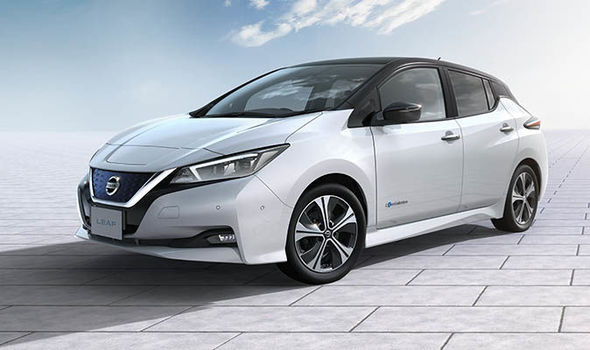
Teaming up with leading community finance provider for solar on schools
Dorking Solar Group is teaming up with Energy4All (E4A) to provide community financed solar to schools. E4A is a professionaly managed cooperative which supports community energy share schemes with a strong track record of success. E4A has supported numerous cooperatives, including the Schools Energy Cooperative (SEC) to which it has provided £1.2m to 32 schools for a total installed capacity of 1.2MWp since 2014! And it does not stop there, as SEC and other cooperatives under the E4A umbrella such as Wey Valley Solar and Repower Balcombe are still looking to install panels on schools before the government terminates the subsidies in April 2019.
The panels provide long term fixed electricity rates to the school which are lower than current rates. In addition, the pupils benefit from the educational aspect of the technology while reducing the school's CO2 emissions. All this at no cost to the school. Local investors receive a reasonable return and the profits remain local (as opposed to unconcerned foreign shareholders). Dorking Solar Group is supporting the initiative by sourcing interested schools and informing the community of any local share offers.
If any one reading this knows of any potentially interested schools or you would like to invest in a community scheme (Amounts as low as £100), please do get in touch. We look forward to getting a project off the ground by the holiday term this summer. Remember that DSG is a non profit society, operated by volunteers. Any assistance you can provide will always be much appreciated. We look forward to hearing from you soon!
For more information on community energy projects visit the following links:
-Wey Valley schools video: Wey Valley Solar Schools Co-operative To Install More In Surrey Schools
- Repower Balcombe video: 'We are changing the world' - the fracking village that's going solar
-Energy4All video: Energy4All: Communities and Sustainable Energy
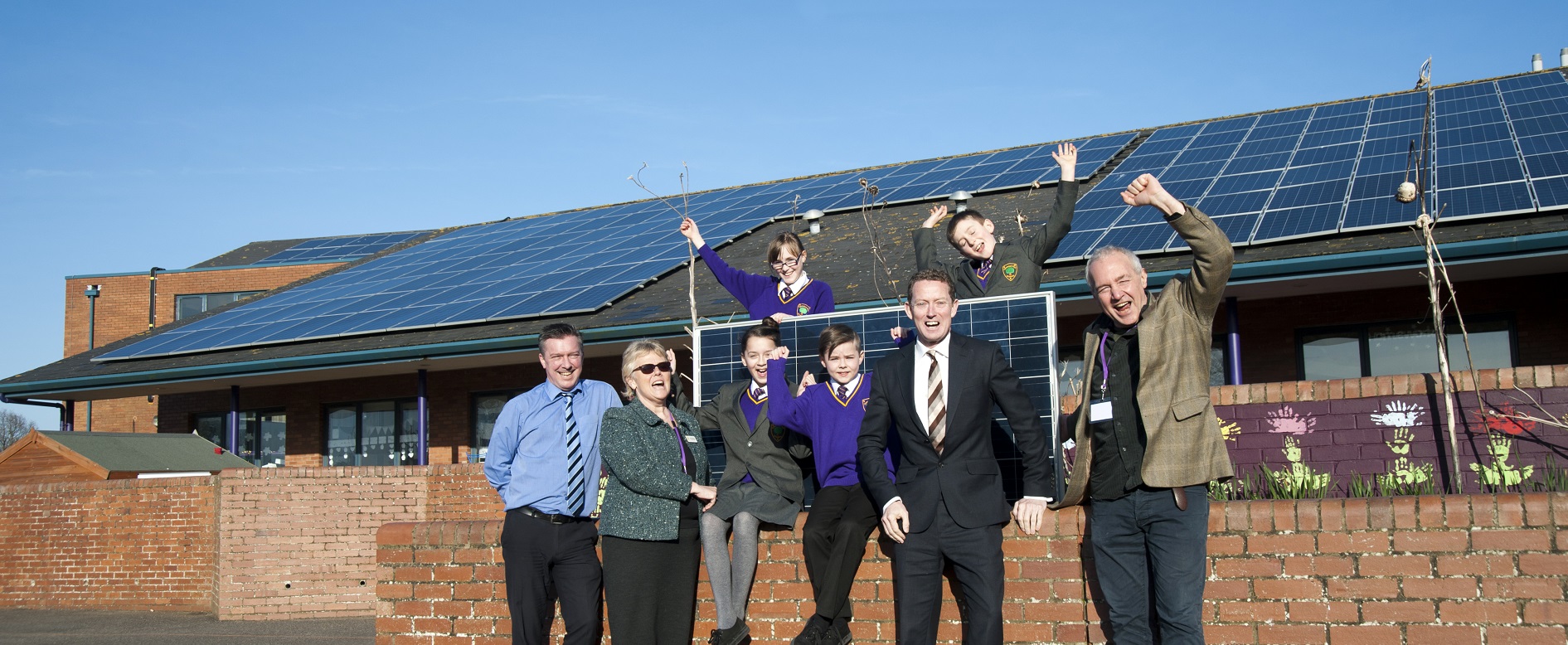
Past 3 years are the hottest on record
The World Meteorogical Group (WMO) confirmed that 2015, 16 and 17 were the hottest years on record.
2016 was the hottest at 1.2 degrees celsius above pre industrial era while 2017 and 2015 were roughly the same at about 1.1 degrees celsius above pre industrial era. Part of the record high temperatures in 2017 can be explained by the El Nino phenomena, whereas 2017 only had slight effects from La Nina.
Increases in surface temperatures have the effects of rasing sea levels and causing stronger storms. These were made clear in 2017 with the breakoff of an Antarctic iceberg twice the size of Luxembourg as well as the Atlantic hurricanes which caused an estimated $270bn of damages, marking 2017 as the most expensive disaster year in US history.
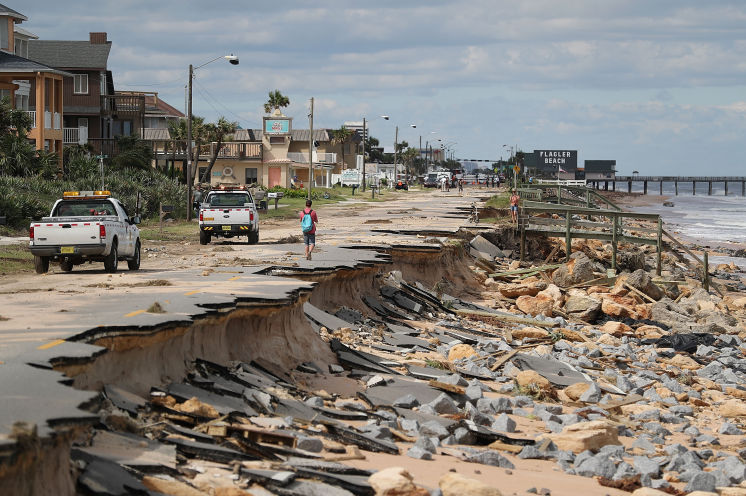
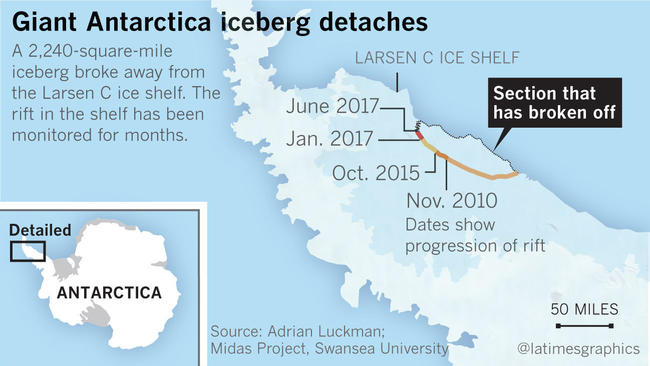
Bullimores install Electric vehicle charge points
Bullimores have recenly installed two new 7kW EV chargers in their car park, which complements their solar panels which the firm of chartered accountants installed several years ago. Effectively, the electricity generated from the panels will now also charge vehicles while they are parked, eliminating the need to stop at a petrol station.
“The move towards EVs appears inevitable so we see the installation of our two new 7 kW Charging points as just the natural next thing” said Partner, Terry Edwards. “These will be available for both our employees and clients to use. We hope that other businesses will follow suit by putting Dorking on the map as a forward thinking, environmentally aware place to live and do business”.

Tesla test drive for quiz winner
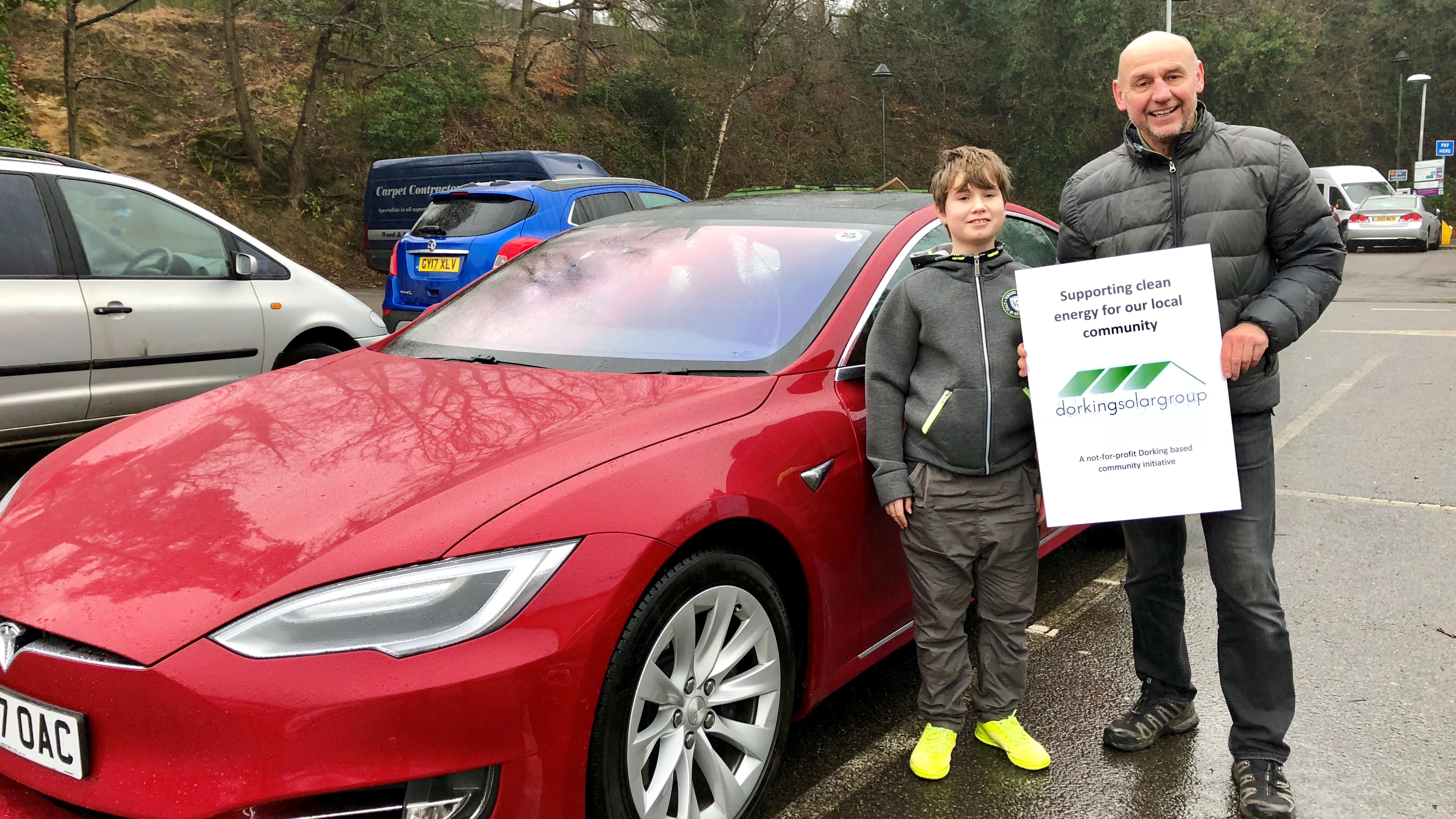
Steve McDonald, co-founder of the Dorking Solar Group, and a young local car enthusiast about to experience a test ride in a Tesla Model S, offered as the prize for scorring high on an EV quiz taken on Dorking Gala Night in December. Tim Rault-Smith, Tesla owner said, “ I am very happy to support the work of this local community group, especially in their new business venture - installing Electric Vehicle charging points.
Thank you to everyone that attended our last event
DSG would like to thank everyone that attended our last event at Burgundy and Black Tuesday 9th January.
To kick the new year off, we discussed some of our past and future projects which include solar pannel and EV charge point installations.
Energy consultant and group member Paul Street also shared some insights on energy generation trends.
Links to presentation videos are listed below:
- WWF video on sustainable cities: https://www.youtube.com/watch?v=o86Ut6kAEMQ
- Electric vehicle video: https://justevs.com/blog/volts-for-oil-fully-charged/
- Reuters short report on 2017 being 2nd hottest year on record: https://www.reuters.com/article/us-climatechange-temperatures/2017-was-second-hottest-year-on-record-after-sizzling-2016-report-idUSKBN1ET1JF
Thanks again to everyone that shared concerns and suggestions. We look forward to seeing you again at the next event.
Lastly, we are currently looking to add members to the group and intensify our efforts, so if you feel like you could contribute in any way possible, please do get in touch.
Free event - launch of new venture in Dorking
Join us for an hour on Tuesday 9th January for the launch of our new Electric Vehicle Charging Point venture.
Date: Tues 9 Jan 2018
Time: 7.30pm
Venue: Bergundy and Black bar, St Martins Walk, Dorking
The agenda is :
- An introduction to community energy and our values
- Cleaning up the grid
- Urban Green video
- Launch of our EV venture
Thank you for supporting us in helping the push away from dirty energy to cleaner options. This is so important to the future of our planet.
Dorking Gala Night 7th Dec 6pm
Drop by our stall on Gala Night this Thursday.
- Sustainable Energy for a better world
- Solar Electricity generation
- Energy Battery Storage
- Reduce your impact on the planet
- And very our latest initiative……………..Electric Vehicle Charging Points.
Also, win a ride in a fully electric Tesla model S – one of the coolest EVs on the market
This is a Tesla model S : https://www.tesla.com/en_GB/models?redirect=no
Thank you for attending our last event on 3rd October
We would like to thank everyone who attended our last brainstorming event at Burgundy & Black last Tuesday, 3rd October 2017.
We would especially like to thank our workshop chairs:
- Chris Crook who discussed recent fracking developments
- MVDC Cllr Clayton Wellman who explained the workings of local government at the district & county levels
- Renewables consultant Paul Street and activist Steve McDonald who reviewed the electric vehicle market
We hope that everyone found it enriching and constructive.
We encourage everyone to take action in reducing our community's footprint, one step at a time.
Fracking developments - an update
We would like to thank Chris Crook who has highlighted important developments in the fracking industry. We hope you find this useful and will do your best to prevent fracking from at your doorstep.
- Big news of the day/year was that Scotland, after having a moratorium, now intends to ban Fracking. The term Fracking has been implied to cover unconventional oil and gas extraction. Unconventional refers to the type of rock formation from with the gas/oil is extracted and this is typically the Kimmeridge Clay layers. Therefore this bans appears to cover Fracking, acidisation and other methods used to extract oil/gas from the shale.
- Locally we have a number of oil and gas wells. Some have been operating on conventional rock formations for many years. The 'nodding donkeys' which use to pump this oil to the surface would have been seen at Brockham (until last year) and Bletchingley and Palmers Wood near Reigate. Now more modern electric pumps are used
- The newer wells are those at Horse Hill (near Horley), Leith Hill and Brockham.
- Leith Hill has not been drilled. UKOG are waiting for the traffic management plan to be approved before they can start exploration work. This would involve 100's of HGV movements along Coldharbour Lane and it is not too late to express your opinions to SCC. There is a Protection Camp just by the site which monitors the movements and work being carried out there. Any help or support you can give the people there would be gratefully received.
- Horse Hill - Horse Hill Developments has just had an application approved to allow further exploration and flow testing which is likely to start in December. This has been described by the oil industry as a fracking site.
- Brockham recently put up new buildings on their site and drilled a side track well without planning permission. The buildings were recently granted retrospective approval by SCC but the side track well is still under dispute. They have also just requested permission to generate electricity from the site. This is the site were 9 local people were arrested and charged with obstruction for trying to raise awareness to SCC, Surrey Police and the local public about Angus Energy's non permitted work and working overnight. Seems there is one rule for companies and another for locals.
Local government in a nutshell - how it works
We would like to thank MVDC Councillor Clayton Wellman who has highlighted key points regarding local government. Hopefully, people will find this useful and get more involved locally.
- MVDC operates under an Executive system where the party with the most seats forms an Administration and from its members nominates Executives to manage the key portfolio areas (in a Cabinet form). It is possible to run a Council on a Committee system and there are arguments for and against either system.
- Highways and pavements are SCC responsibility, not MVDC.
- Waste - Essentially MVDC manages householders' bins. SCC handles the public waste disposal sites such as CRCs (tips) and it also handles permissions for industrial waste processing sites, which leads into:
- Planning - SCC handles applications for waste and minerals. Whereas MVDC handles applications for residential and commercial property. When debating and making decisions on planning applications there is a need for a policy basis. If one is to enforce a refusal or to enforce a condition on a development it must be rooted in policy. Therefore, a robust and contemporary set of policies held by MVDC is essential.
- One way for policy to be established is the bringing forward of motions by Councillors. If approved by the Council, these can then form the basis for policy. For example, we are bringing forward a motion to promote and install EV charge points as well as make a requirement for new developments above a certain size to require an installation. If passed this would then work its way into Council policy.
- In some places the two-tier local government system has been collapsed into one unitary system. This has many advantages in terms of savings and clarity of responsibilities & public contacts. However, it can also be said to marginalise the interests of those in low population density areas or with particular locales and needs. At present MVDC is embarking on plans for a number of Joint Working Groups with SCC and other neighbouring Districts. This is in effect a kind of compromise in which sharing helps create efficiency where possible & reduces overlap etc, whilst still keeping distinction.
- There was mention of an app for people to get more involved in some local decisions. This is something I advocate and have raised with colleagues on numerous occasions. I think it is really important to try to get people involved and have a sense that they can have an impact on their communities and localities and that their views really matter. If developed, an appropriate app could really help with this, as well as being a good communication device to keep members of the public informed on all kinds of matters.
Electric vehicle market - driving things forward
Thank you Steve McDonald and Paul Street for having highlighted key developments in the UK Electric Vehicle market:
- Improvement of air quality and supports the urgent need to move away from fossil fuels
- Savings on petrol costs
- Subsidy up to £4,500 for car purchase. Zero road tax. Zero London congestion charge
- Vehicle makes virtually no noise
- Much simpler build, far less parts therefore easier and cheaper to maintain
- Stable driving as the battery weight is spread evenly along the bottom of the vehicle
- More space in the car since there is no engine, only a flat battery along the bottom
- Fast acceleration
- Energy conversion rate using the internal combustion engine only 40%
- Conversion of electricity into forward motion energy in an EV well above 90%
- Efficient regenerative braking - motor put into reverse generating electricity put into the battery
- £6 billion of EV investment made in last 2 years
- In 2013, 3,500 EVs on UK roads. In 2017, 107,000 EVs. One million predicted by 2020
- Choice of 55 EVs in 2017. Up from a choice of 9 in 2011
- An EV to suit every budget, from Renault Twizy at around £7,000 to Tesla model S - top range up to £100,000
- Dyson is investing £2 billion into developing a EV, expected to launch in 2020
- From 2019, all new Volvo cars will have electric or hybrid engines
- Audi is working to develop solar cells that can be integrated into the panoramic glass roofs
Event - 3rd Oct 2017
Our next event is at Bergundy and Black in Dorking at 7.30 on 3rd Oct 2017.
We've gone a little off-ppiste here and offer you three unusual subjects in a workshop format.
Cllrs Claire Malcolmson and Clayton Wellman present Mole Valley District Council
From potholes to planning, MVDC is often the target of our ire. Claire and Clayton are wil be here to explian how the councl actually works, discuss your concerrrns and tell us how they can help address the environmental challenges we face.
Local fracking
As our group was formed to promote renewable energy, we are generally opposed to fracking. Being from Dorking we are actutely aware of the issues at Leith Hill and whist this isn't regularly part of our agenda we felt that you would like to know about it.
Local campaigner Chris Cook will be along to answer questions and bring you up to speed with the latest news.
Electric vehicles and charing points
Already covered in our recent emails, the imminent boom in this industry brings us a cleaner environment ad better air quality.
Find out where we are on this road and share your suggestions on how Dorking Solar Group can help this grow through the installation of more charging points.
Event - Before the Flood film
Dorking Solar Group in conjunction with Transition Dorking present Before the Flood. The film follows Leonardo Di Caprio around the world as he gives an enlightneing account of the dramatic changes occurring due to climate change.
We are delighted to also have with us the Natural Scientist and educator Rich Thompson who will be attending to answer questions and give extra insight on some of the topics raised by the film. Rich has a passion for sustainability fuelled by his first hand experiences of rainforest devastation for palmoil plnatations in Borneo, the global decline of coral reef ecosystems and a belief that through education, positive change is possible.
Date: 28 July 2017
Venue: Bergundy & Black, Dorking.
Time: 7.30pm
Upcoming Events
Please join us on Tuesday, 6th December from 7.30pm, in the "Narnia" room at The Old House at Home, Dorking for pre-Christmas drinks and chat.
In the New Year, on Wednesday, 18th January, we are holding a presentation on Ethical Investment. Do you know how your bank, or institution you invest with, uses your money? This event will broadly sweep across a number of different ways that your money can make a positive impact on society and the planet. 7.30pm, Burgundy & Black, St Martins Walk, Dorking.
Are you ready to be an 'energy citizen'?
Are you ready to take responsibility for your own energy usage?
Are you ready to do what you can to help make the transition to a more equitable, sustainable energy system?
It is becoming increasingly obvious, as highlighted in a recent report from Oil Change International, that fossil fuels - oil, coal and gas - should be kept in the ground, in order to achieve the cut in carbon emissions needed to avoid the worst affects of climate change. We need to stop relying on dirty fuels that cause damage to our environment and to our health.
You have the power to help drive an energy revolution - putting the needs of people and planet ahead of big energy company profits - with a new study suggesting that, by 2050, 45% of European power demand could potentially be met by 'energy citizens'.
'Energy citizens' are individuals and public bodies that are active participants in the energy system, producing energy or managing their demand via the installation of solar panels, wind turbines, electric boilers, electric vehicles and battery storage. By making use of increasingly affordable technology, powered by clean, freely available, renewable resources, individuals can take the initiative in helping to tackle climate change and gain greater control over their energy usage at the same time.
You can make a difference, even if you can't install renewable energy solutions in your home:
- Reducing energy consumption in homes and offices has a massive role to play. Action Surrey can offer help and advice in making your home more energy efficient via insulation and other energy saving measures.
- Buy your electricity from a supplier who sources electricity from renewable sources. The Green Energy Marketplace can help you to find the best green tariffs available in your area.
- Where you keep your money is important. Does your bank or pension provider use your money to fund the fossil fuel industry? The divestment movement is encouraging us to move our money away from institutions that finance fossil fuels and into those that support social and renewable energy projects.
- Support a community energy project. With low interest rates being offered by traditional banks, renewable energy projects can offer good rates of return for your investment (your capital may be at risk). Ethex hosts a range of community energy projects offering positive ways to invest your money.
- Meet with or write to your MP and local councillors to let them know how you feel about climate change, renewable energy, fracking, nuclear, fossil fuels etc. The most recent Government Energy & Climate Change Public Attitudes Tracking Survey shows that 76% of people support renewable energy; 36% support nuclear (although 86% are unaware of how the UK manages radioactive waste); and a mere 21% support fracking.
- Mass public pressure can have an influence on corporations and governments. Support a campaign that reflects your values and the changes that you would like to see in the world.
Remember, you have the opportunity to make a difference: look for the things you can change and your actions could also influence those around you to do the same!
